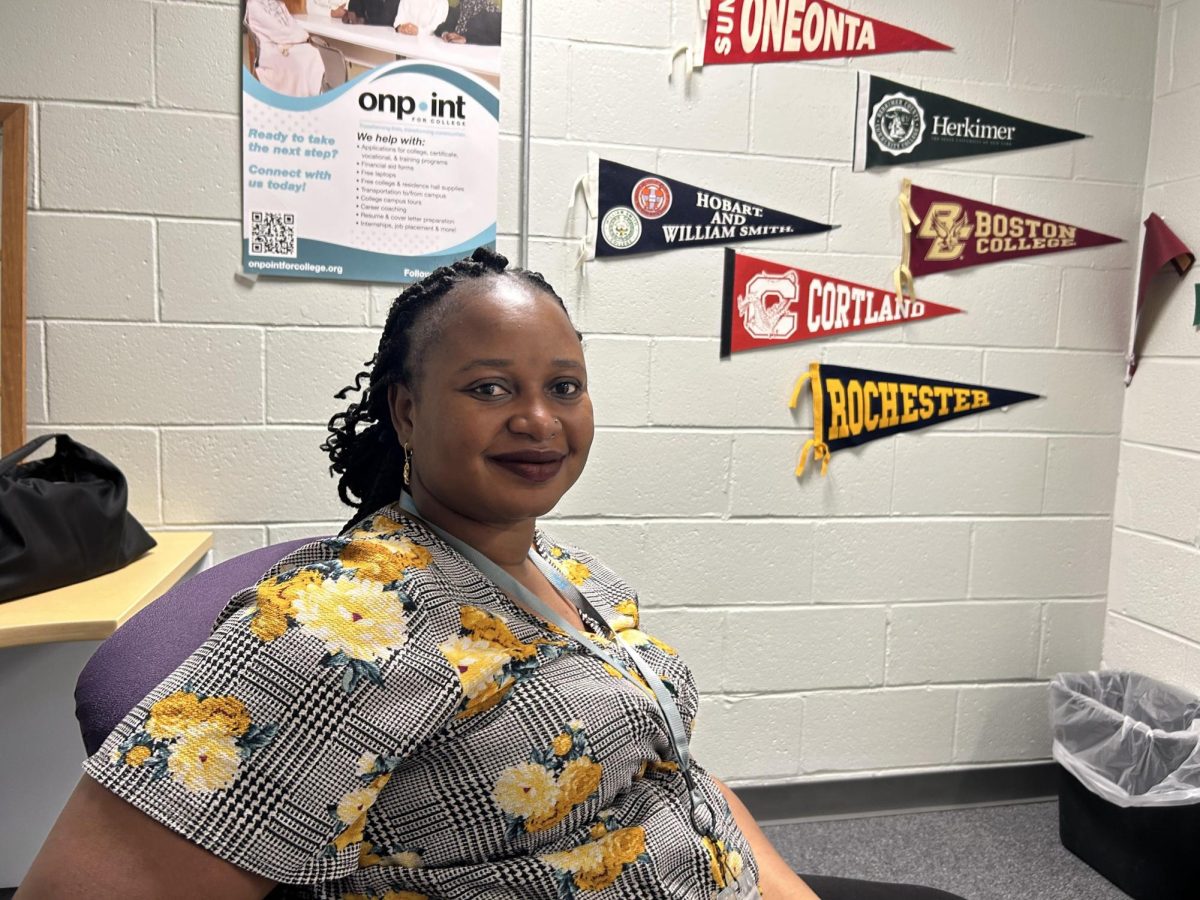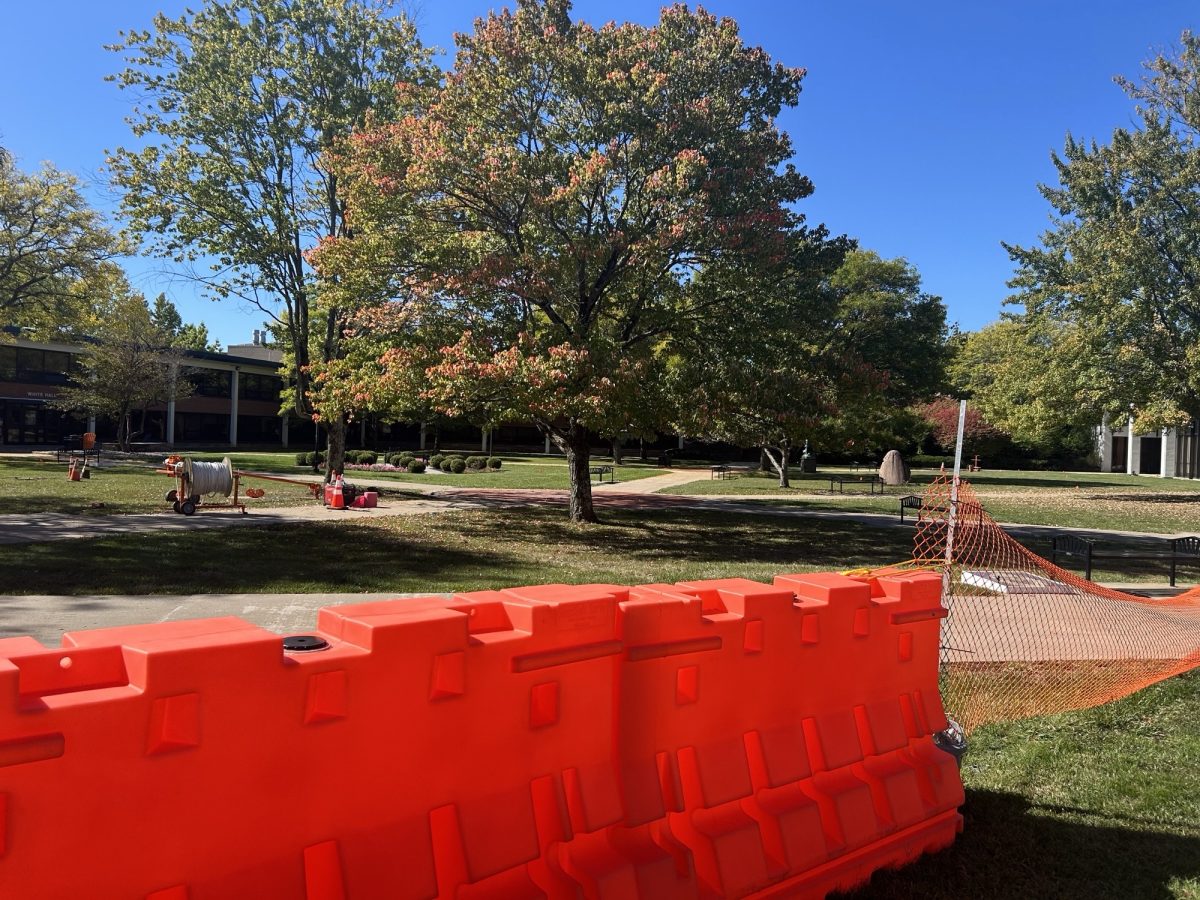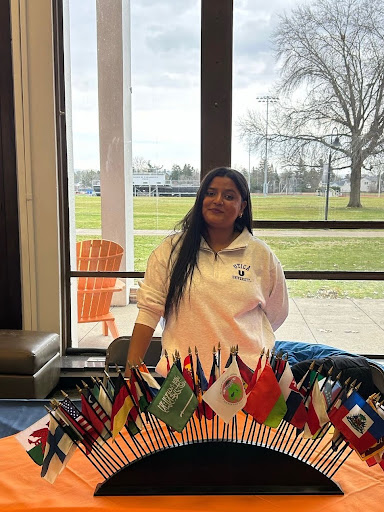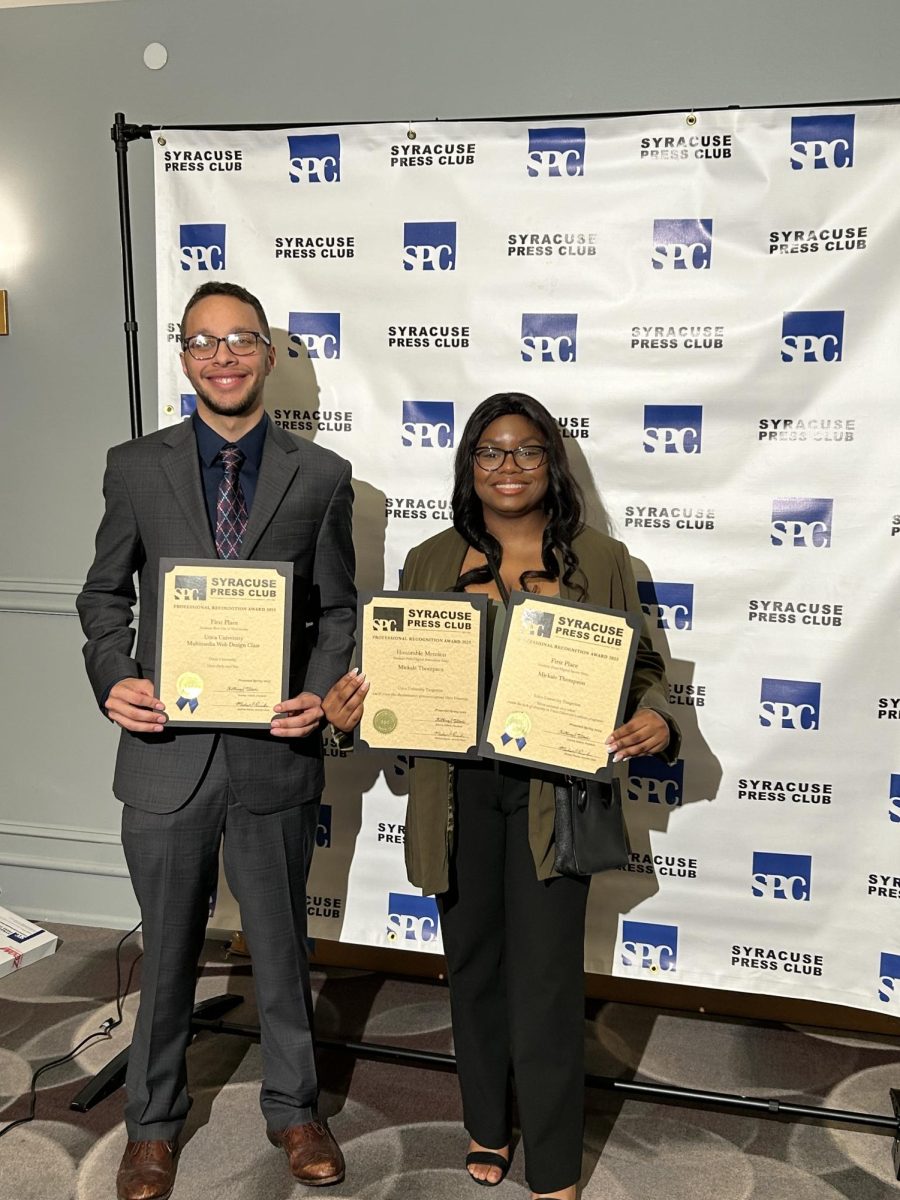On May 16, 2001, an 11-year-old girl from Sierra Leone was forced to leave her home, her mother and everything she knew in order to be safe.
Hawa Peters fled because of the war-torn state in her home country. There was a constant threat of attack as Sierra Leone was in the middle of a Civil War, making any part of the country a battlefield. She lived there with her mother and eight siblings.
Since 1975 over 3.6 million refugees have entered the United States. In 2023 alone, 60,000 entered the United States, according to the nonprofit USA Facts, refugees from Bosnia, Burma, Africa, Ukraine and other places are forced to leave their homes to seek safety in America, some of which ending up in Utica. For cities like Utica, who were suffering from the de-industrialization, the new businesses, cultures and diversity helped the rust-belt city enter an age of growth.
“I remember in Sierra Leone, kids my age were getting killed, they were getting their hands and feet cut off,” Peters said. “It seemed like there was no time to relax; there was always the constant fear of being attacked. There were always gunshots, and we always had to be ready to run.”
Hawa and her family fled to Gambia first in order to fly to the United States. Despite leaving Sierra Leone, they could not avoid the fighting. Gambia was in the middle of a Civil War as well and one of Hawa’s brothers was killed before making it out of the country. Their mother stayed behind for a couple years and joined them in the United States in 2003.
From the beginning of Peter’s trip, she and her family were seeing things they have never seen before. The technology in the airport was all new to her, and when she got on the plane it was completely foreign.
“There were so many people, there was this technology everywhere, and my younger siblings were crying,” Peters said. “Everything about the experience was scary and overwhelming.”
Resettling and finding belonging in Utica
When Peters arrived in Utica, her family was given a small apartment on Elizabeth Street. She shared a room with her sister, and remembers their fridge being stocked with food. However, the American food was so different from the food they were used to, they chose not to eat it.
Organizations like The Center in Utica are crucial to families like Hawa’s who are seeking safety in the United States because they provide critical assistance upon arrival. The Center interviews families and assists refugees with benefit applications for things such as Social Security cards, food and medical assistance.
Since 2019, The Center has doubled the amount of resources they provide to refugees. They now provide 27 different services.
“We offer courses in traffic safety, cultural competency and community education,” said Shana Pughe Dean, manager of translation and training at The Center. “Our goal is to help people with anything that can be hindered by a language barrier.”
On top of offering educational and financial services, Dean also works to get translators into schools so the new students can understand the content they are being taught.
When Peters started school in Utica it was a difficult experience.
“We didn’t have the resources kids have now,” she said. “I remember struggling in school, I also remembered getting bullied just because I was different from the other kids.”
In ninth grade, Peters moved to Florida, where she spent the next 10 years of her life. Since then, she moved back to Utica, got married and now has four children.
When the COVID pandemic started and her children began to see and hear about people dying due to illness, she was reminded of her home in Sierra Leone and this made Peters want to help the community.
“Iit triggered something in me,” Peters said. “I remember what growing up and seeing people die is like, and it seemed like my kids were going to have to live through the same thing. My husband and I wanted to help so we decided to start the organization”
In 2021 Hawa and her husband, James Peters, started Utica Royalties, a non-profit youth organization that offers a variety of classes including dance, art, computer, drumming and hygiene education. She said starting Utica Royalties was the right choice for her because it helps empower youth by giving them confidence and pride. The meaning behind “Royalties” is that the children should wear a crown on their head.
“We started with dance classes, which I taught,” Peters said. “Now we have health and wellness classes as well as computer classes so that we can give the youth in Utica as many opportunities as possible.”
Utica Royalties also holds performances at events in Utica and at the New York State Fair. They partner with local organizations in order to reach out to kids. Their goal is to introduce topics to the youth and motivate them to reach their highest potential.
“It’s a place to express your creativity and talent,” she said. “It is about giving them an outlet.”
Resettled refugees make positive impact in their communities
A 2023 study by the American Immigration Council provided insight into a small and often misunderstood segment of the foreign-born population, demonstrating the strong upward trajectory experienced by many refugee families in the United States long term. “Rather than representing a drain, refugees bring a high rate of labor force participation and a spirit of entrepreneurship that helps sustain their towns,” according to the study.
In 2019, the U.S. was home to almost 188,000 refugee entrepreneurs, a group that brought in $5.1 billion in business income. Entrepreneurship has always been essential to the health of the economy. According to the study, on top of refugees earning $93.6 billion, $16 billion of which went to federal taxes, their businesses have created countless jobs for people in their communities.
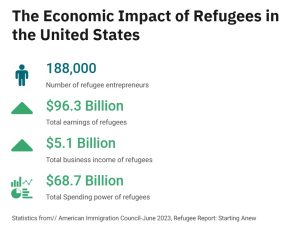
The study also revealed that refugees help fill workforce gaps in healthcare and manufacturing, in service jobs and transportation. They start businesses at high rates, even compared with other immigrants. They buy homes where they can afford them, including in blighted areas in need of refreshment.
Giving back
From the minute Peters and her family arrived in Utica, she loved it. It felt like a quiet, peaceful, safe haven. She was raised in an open-minded home, so accepting new cultural differences wasn’t a struggle for her. Grateful for the new opportunities allowed in the United States, Peters wanted to make a difference in the lives of others because she loves to give back.
She said starting Utica Royalties was the right choice for her because it helps empower youth by giving them confidence and pride.
Peters had advice for recent refugees who are resettling in Utica: “Love your community, embrace where you are, put yourself out there, you are helping someone else and getting help in return.”





































































































































